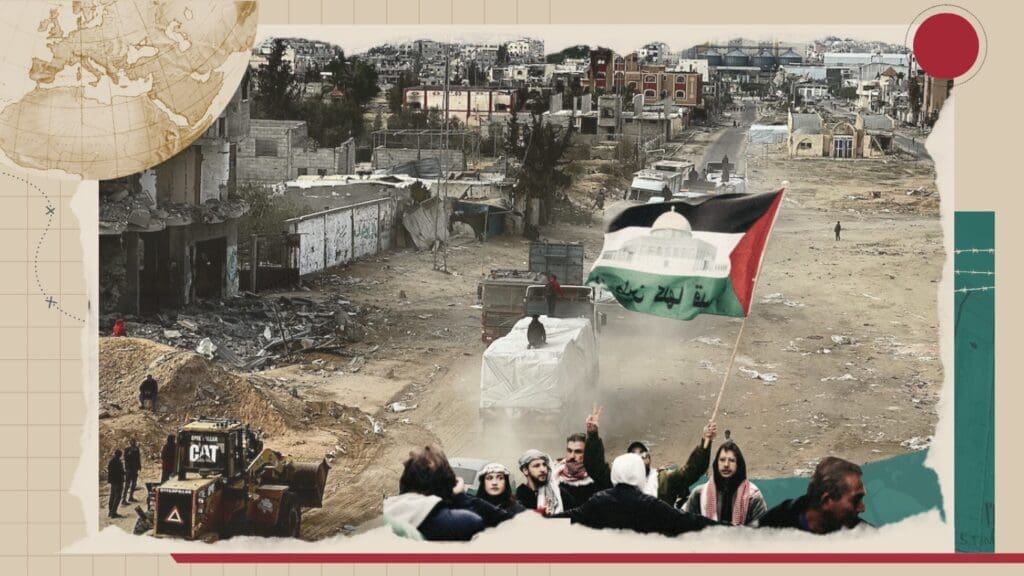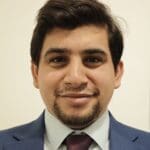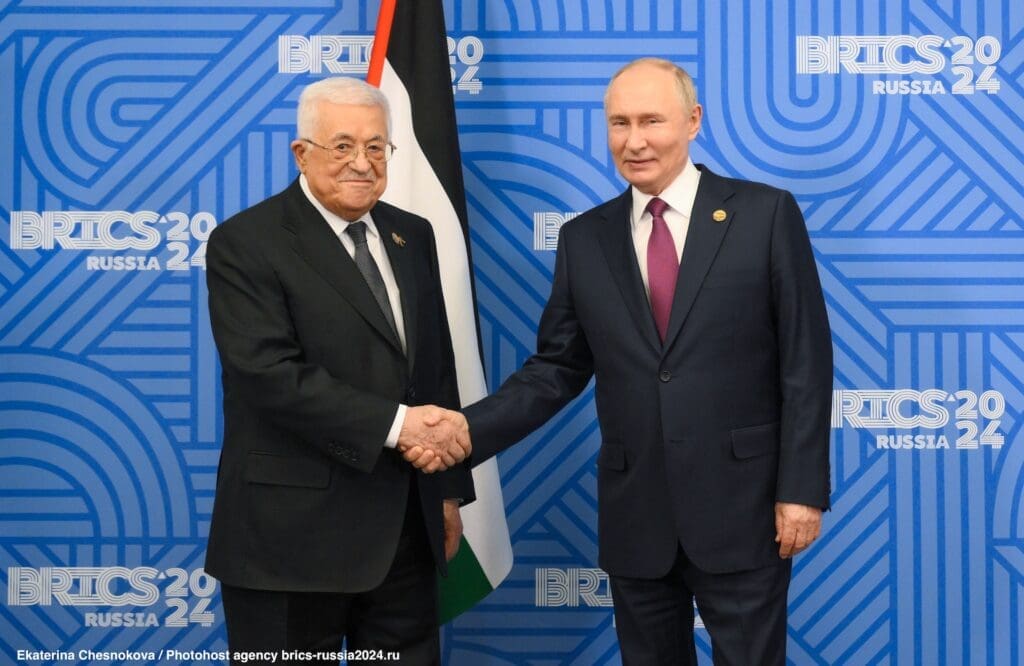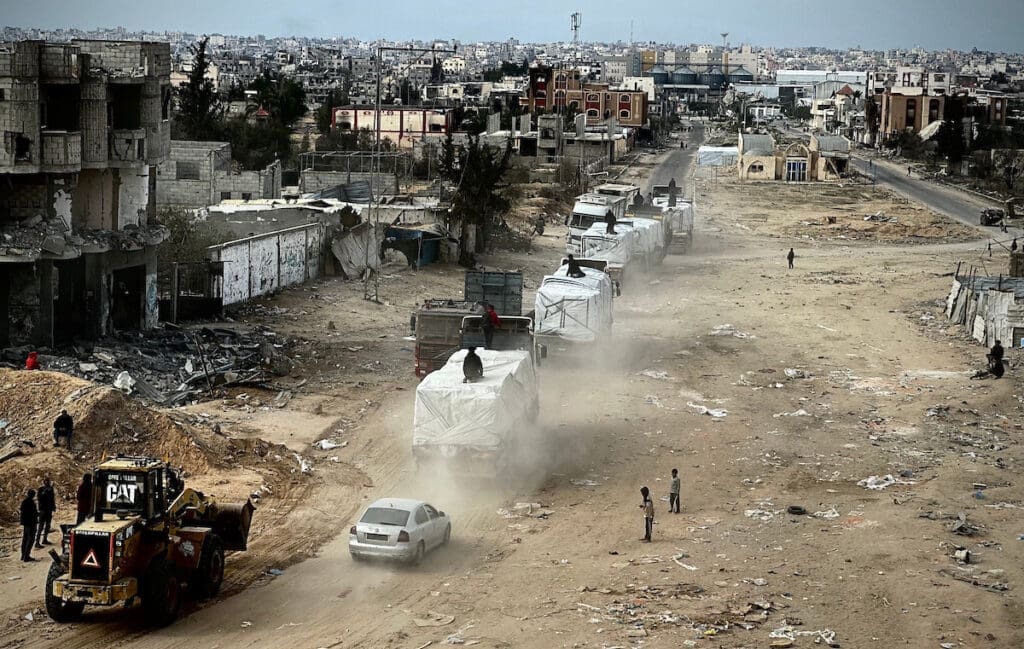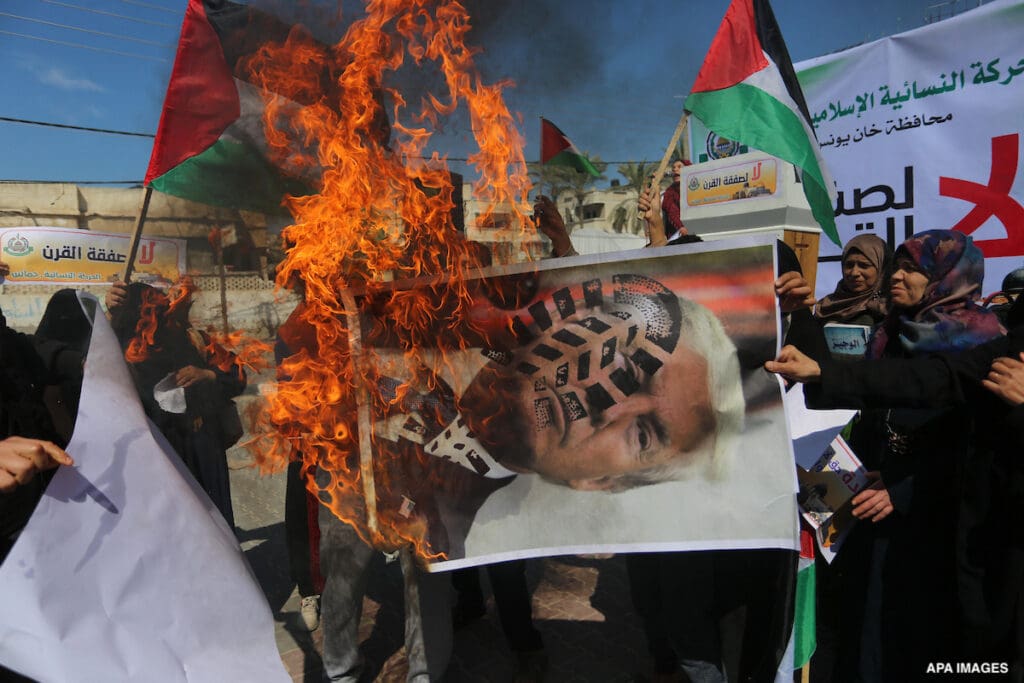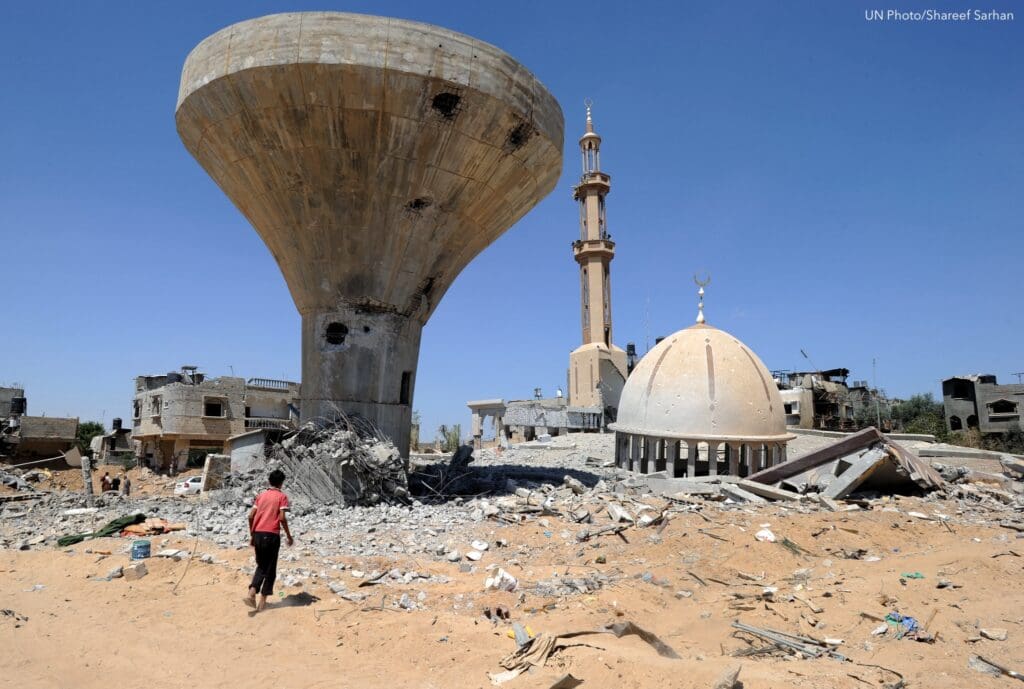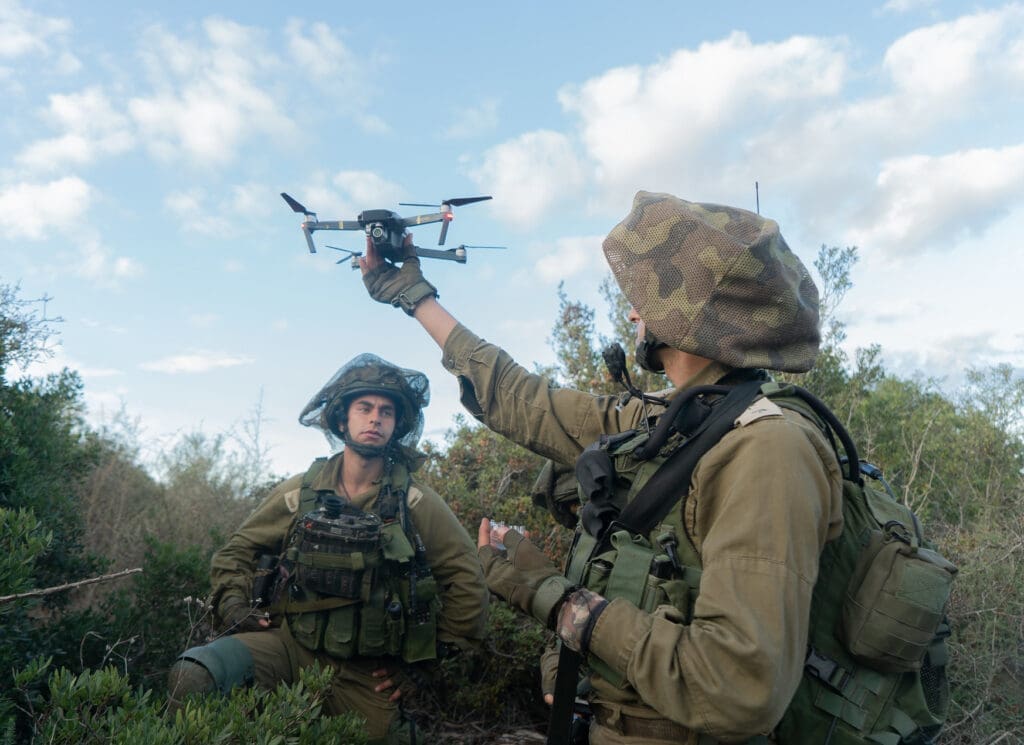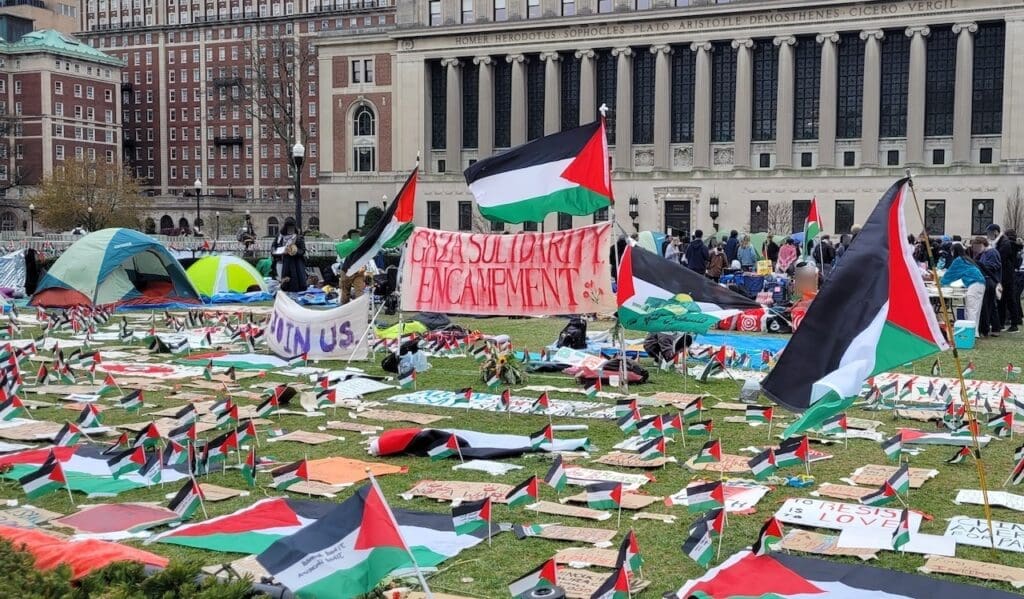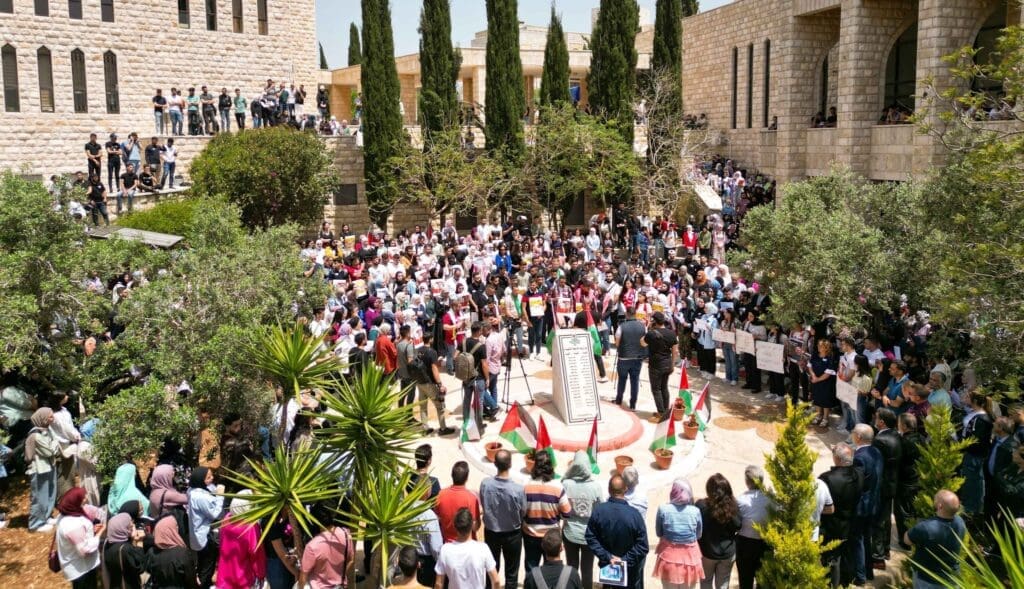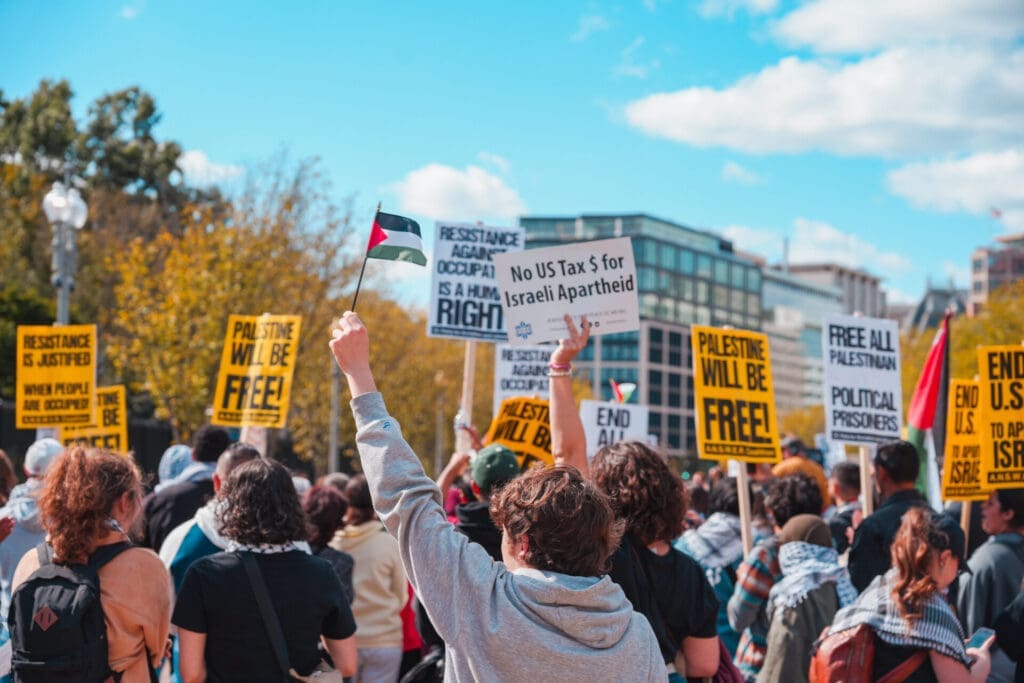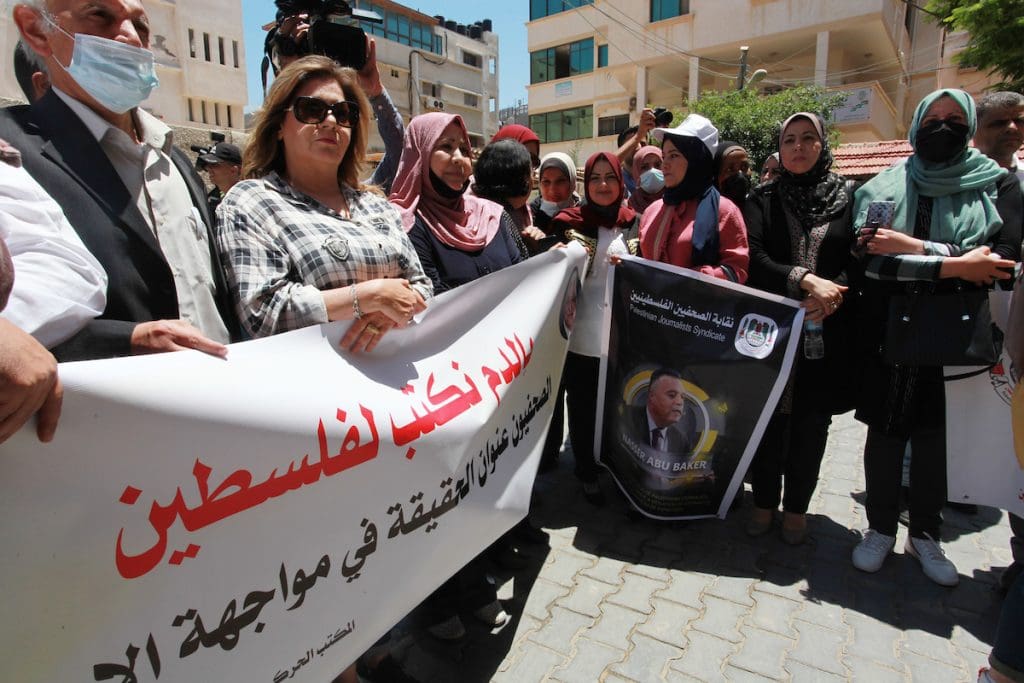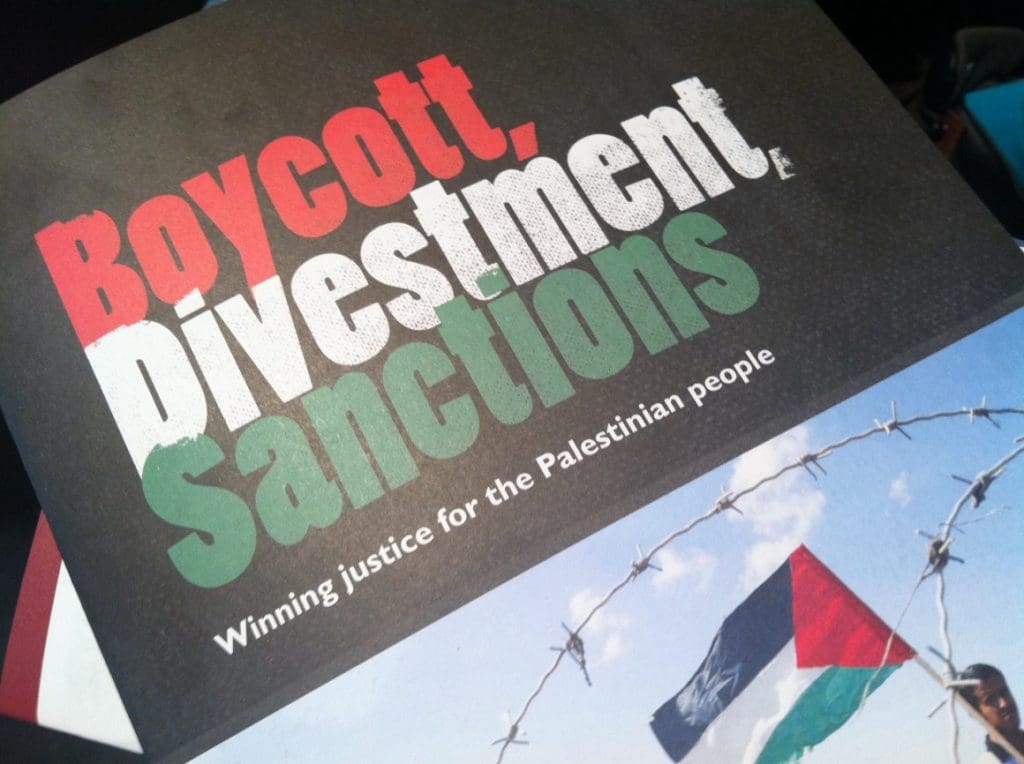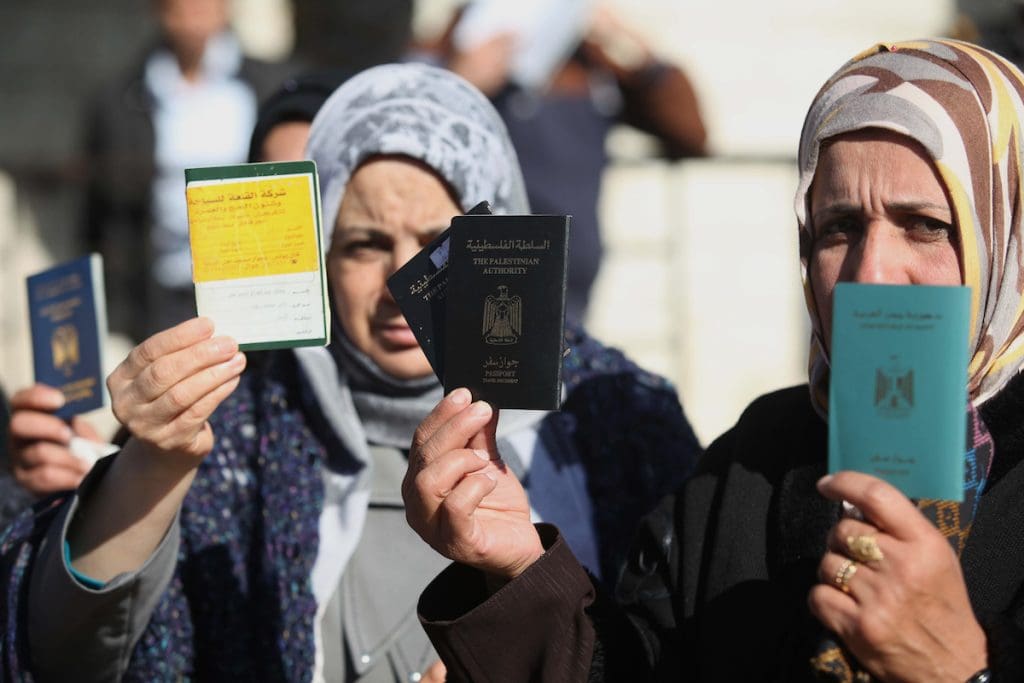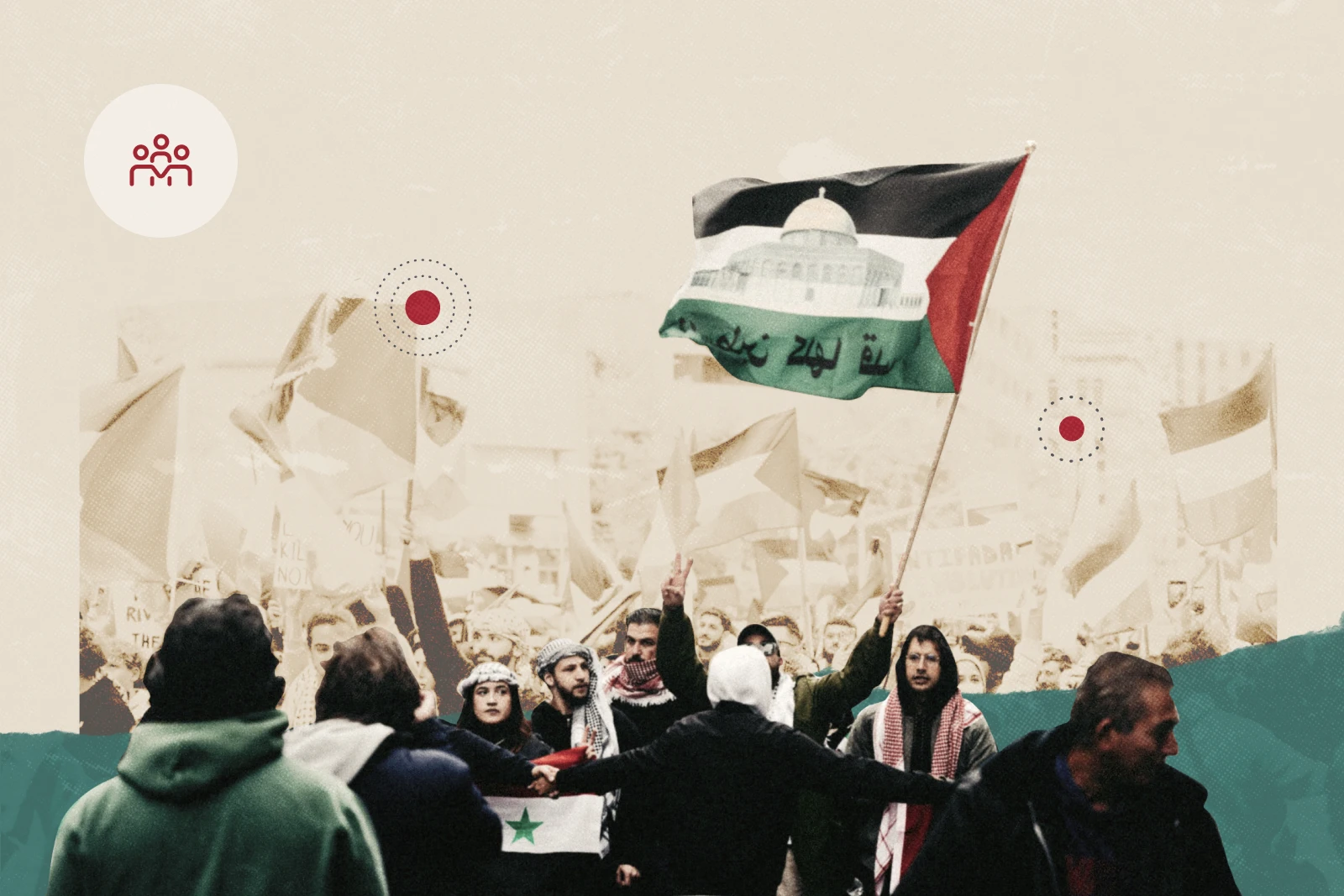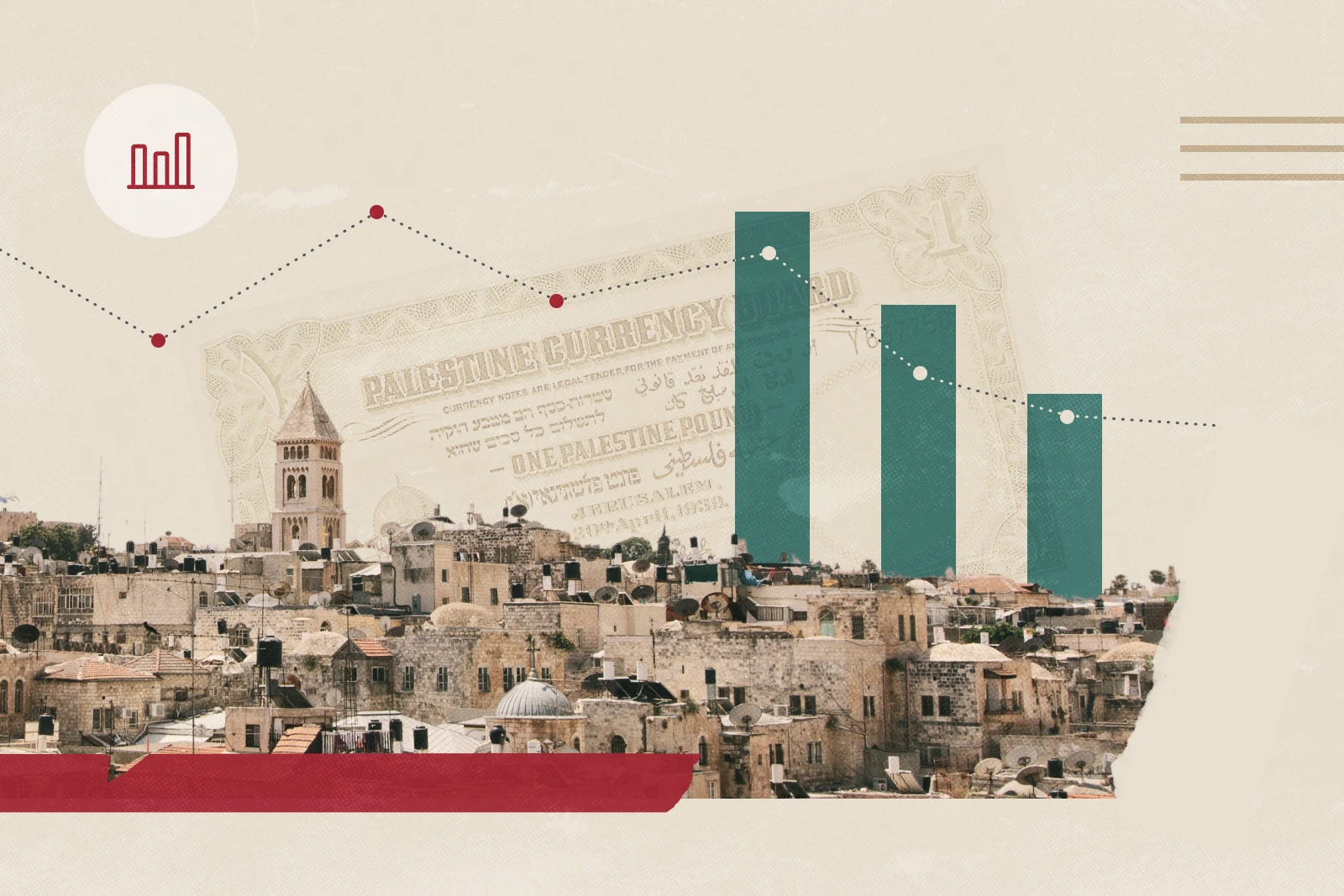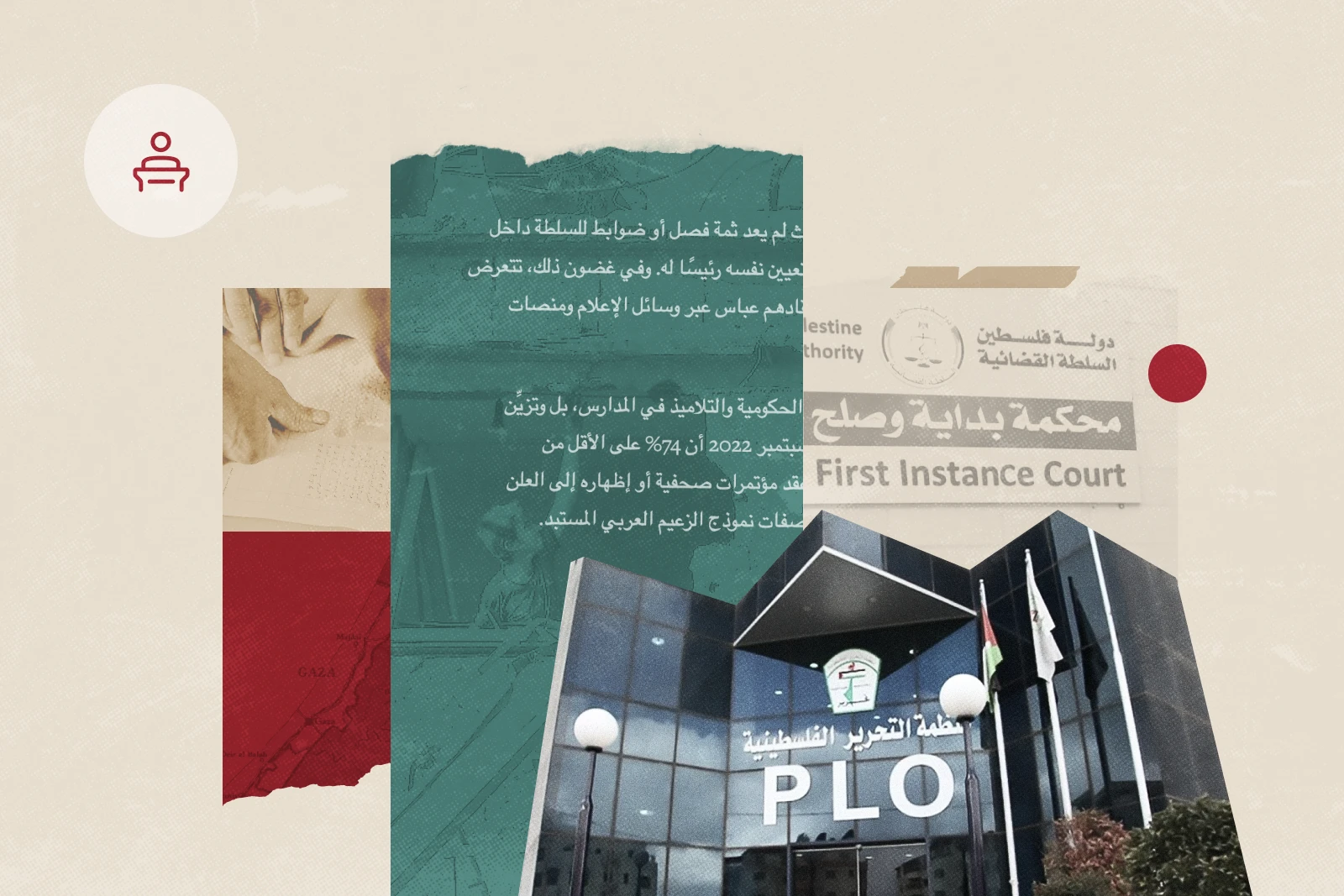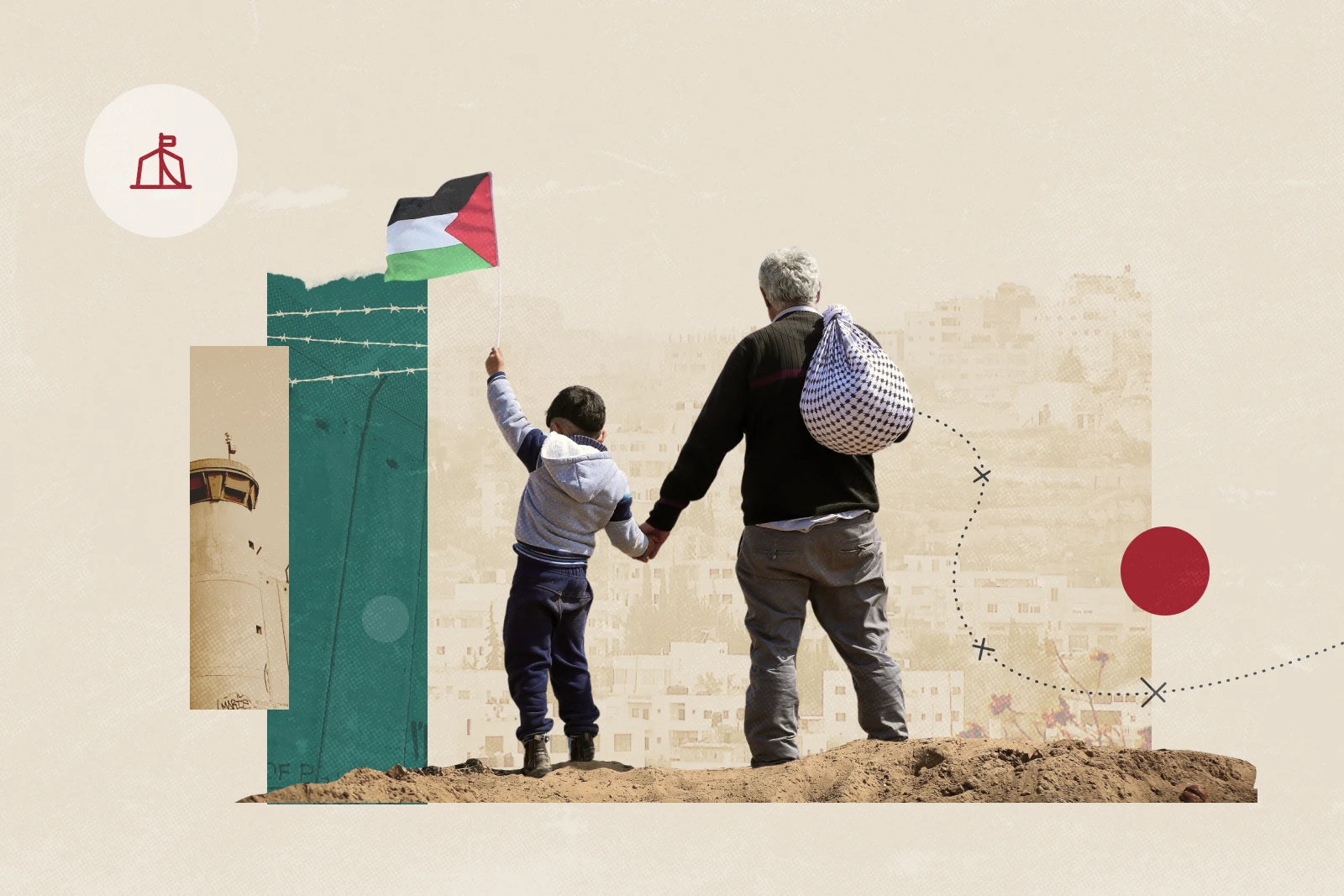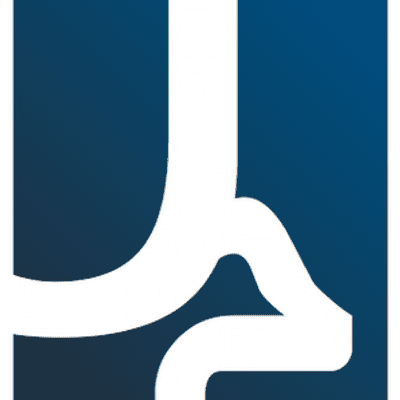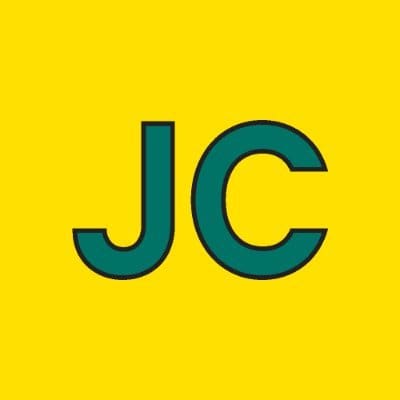typePolicy Labs
In this policy lab, Dena Qaddumi and Jehad Abusalim join host Tariq Kenney-Shawa to discuss what the ceasefire in Gaza means for Palestinians and the state of the physical and political landscape that determines what comes next.
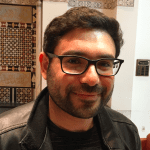
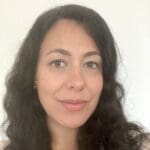

In this policy lab, Halah Ahmad and Andrew Kadi join host Tariq Kenney-Shawa to discuss what the incoming Trump Administration will mean for Palestinians, how it will affect the pro-Palestine solidarity movement in the US, and how to prepare for it.
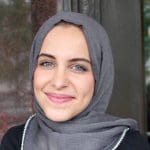
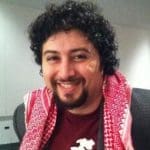

In this policy lab, Yara Asi and Layth Hanbali join host Tariq Kenney-Shawa to discuss Israel’s systematic assault on civilian infrastructure across Gaza and efforts to survive and rebuild against all odds.


In our upcoming policy lab, Marwa Fatafta and Antony Loewenstein join host Tariq Kenney-Shawa to discuss Gaza as a testing ground for Israel’s global war industry.


In this policy lab, Nour Joudah and Kylie Broderick join host Tariq Kenney-Shawa to discuss some of the key lessons to be gleaned from the encampments and how we can best build on them to strengthen the Palestine solidarity movement moving forward.

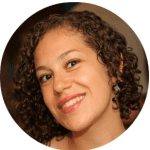
In this policy lab, Ihab Maharmeh and Ahmed Abu Ziad join us with facilitator Fathi Nimer to discuss the past, present, and future of the student movement in Palestine.
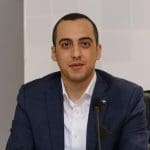


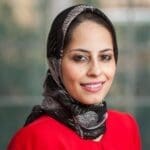
The accelerating adoption of academic boycotts of Israel is just one manifestation of growing support for Palestinians and intensifying efforts to hold Israel accountable for colonization, occupation, and apartheid. However, academic boycotts remain one of the most controversial pillars of the wider boycott, divestment, and sanctions movement. According to a recent study, while 91% of Middle East scholars support at least some boycott of Israel, more than a third are hesitant to get behind a boycott of Israel’s academic institutions.


Throughout history, labor strikes have been used as a potent tool in expressing dissent, voicing grievances, and demanding change. In Palestine, they have emerged as a powerful mode of resistance and a critical source of leverage for workers. These strikes have encompassed diverse sectors, including labor, education, healthcare, and more, showcasing the unity and determination of the Palestinian people in their struggle for liberation.
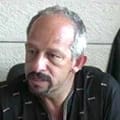

As the Israeli regime escalates its apartheid and settler colonial practices in Palestine, calls for sanctions against it have likewise increased. Still, sanctions remain controversial - both in terms of their ethics and efficacy. Indeed, many have argued that sanctions have rarely achieved their intended goals.

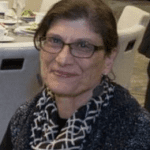
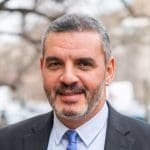
The Israeli regime subjects Palestinians across colonized Palestine to an intricate system of demographic control.



Media & Outreach
Killing large number of children in Gaza is not simply forcible depopulation. It is an effort to destabilise communities and crush their hopes for liberation and the right of return as mandated by the UN.
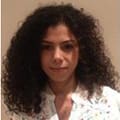
Mai Abu Moghli· Mar 19, 2025
"Clues remain for what a decolonized and liberated future for Palestine and its people could look like – and what beauty there is to find along the way," writes Zena Agha

Zena Agha· Mar 17, 2025
On this episode of On the Nose, Jewish Currents senior reporter Alex Kane spoke to Mouin Rabbani, a co-editor of Jadaliyya, and Tariq Kenney-Shawa, US policy fellow at Al-Shabaka, about situating this moment in the long history of Palestinians displacement, whether and how a Trump ethnic cleansing plan is likely to unfold, and how it will impact the ceasefire in Gaza.

Tariq Kenney-Shawa· Mar 6, 2025
We’re building a network for liberation.
As the only global Palestinian think tank, we’re working hard to respond to rapid developments affecting Palestinians, while remaining committed to shedding light on issues that may otherwise be overlooked.
